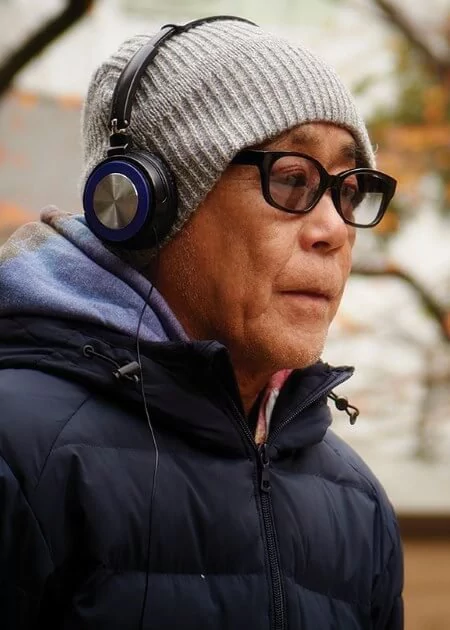
Movies
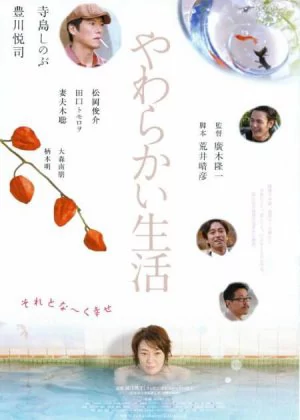
Hiroki delivers one of the most natural, confident, and empathic dramas I've ever laid eyes on. On the outside it appears to be a simple film, but underneath lies a wealth of emotions.
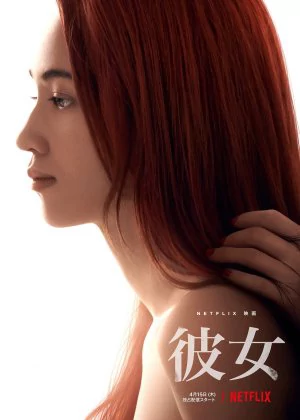
Hiroki's adaptation of the Gunjō manga is a tricky project. It's quite long, it doesn't feature the most accessible leads, it's rather blunt and it's set up in such a way that the intensity of the film decreases. But the performances are superb, Hiroki's lens is perfect and the core relationship intrigues from start to finish. The reception has been rough, then again that's no surprise when you release a film like this on a global platform like Netflix.
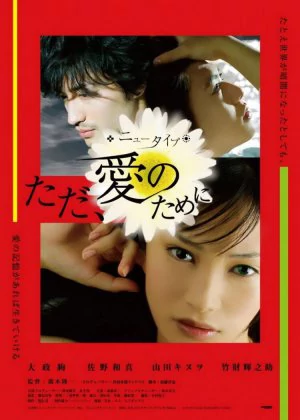
Hiroki made a pretty brave move here, incorporating new elements from other genres into his movies without changing anything of his trademark style.
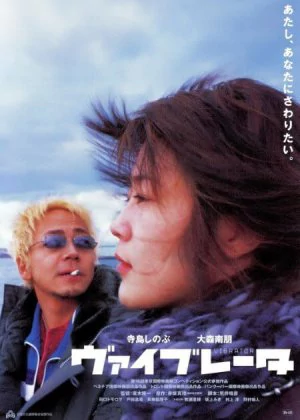
A vintage Hiroki drama. It may not look like much from the outside, with only a sliver of narrative and limited genre influences (it's a road movie, though without the usual traits of the genre), but the characters are intriguing, and the performances are stellar (with Terajima as the absolute standout). Hiroki generally does very well with female characters and Vibrator is one of the films that earned him that reputation. I wasn't quite sure if the film would up after a rewatch, but the film hasn't lost any of its appeal. It had me smitten from beginning to end.
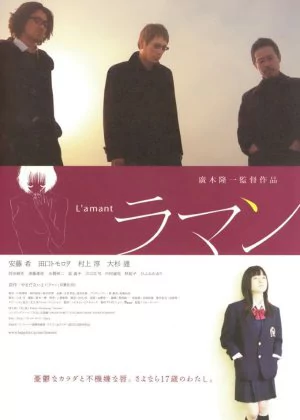
It's probably a good thing Hiroki was able to make this film 20 years ago, it's difficult to imagine he'd get away with it nowadays. And that's a real shame, as his unabashed take on a tricky/taboo subject is what makes this film stand out. Great performances, an intriguing premise and a splendid blend of hard and soft turn this into a unique and accomplished drama. If you're easily triggered it's probably best to approach this film with caution, more mature audiences will find a drama where there's a lot to unpack.

If you want another character drama, M might prove to be a too big a challenge and there are plenty of other Hiroki films you could and should be watching instead.
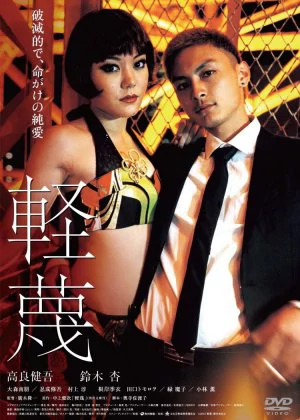
Keibetsu turns out to be another strong addition to Hiroki's oeuvre. It's not his best film to date, but it's nice to see him try out new stuff, even when it's not all that radical.
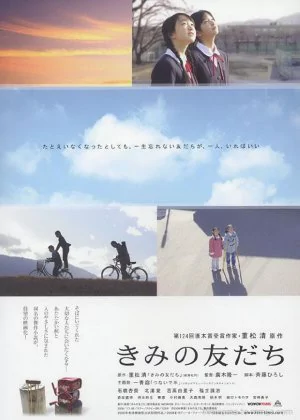
It's not a wildly original film but it introduces enough elements to differentiate itself from other Japanese dramas while keeping the usual traits firmly in place.
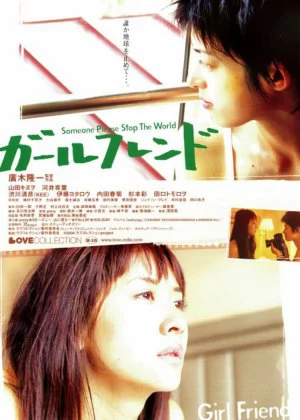
Girlfriend: Someone Please Stop The World is a solid, smart drama that serves as a good entry point to his oeuvre. The film showcases his talent and houses many of his trademark elements.
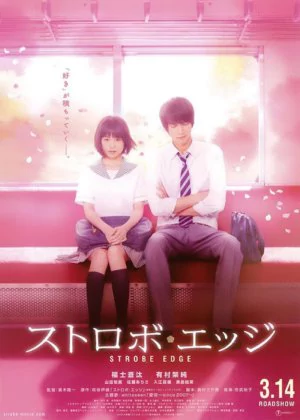
In many ways, Strobe Edge is a typical manga adaptation as much as it is a typical romance. But Hiroki builds upon that to make a sweet, cute and genuine little love story.
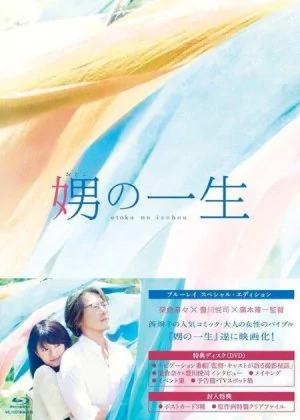
Her Granddaughter is a beautiful, serene and heart-warming little drama with no false notes, no overt sentimentality and no obvious tear-jerking.
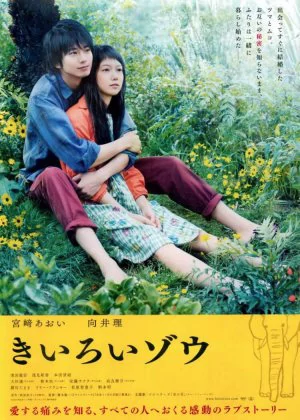
Thanks to its slightly magical touches and its strong shifts between feel-good and drama, Yellow Elephant rises above the majority of other Japanese dramas out there.
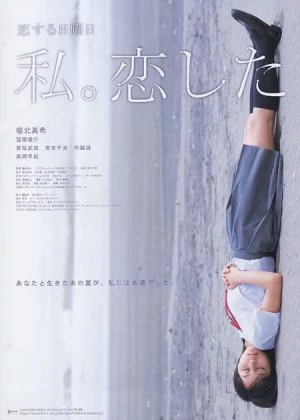
For Western audiences the themes of Last Words may be quite sad and depressing, but Nagisa's acceptance of her nearing death paints a very different picture.
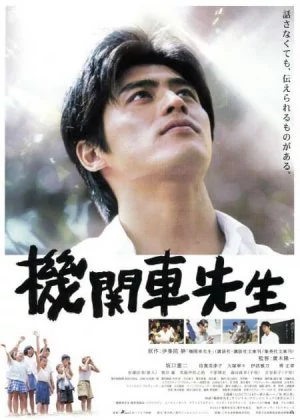
I became transfixed by the soothing island atmosphere, the laid-back pacing and the nice surroundings.
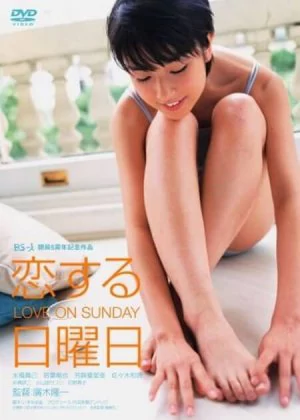
Like most of Hiroki's films, this is small and delicate, but still manages to pack a punch. It's a very sweet, laid-back tale about moving away to a bigger city, saying goodbye to your childhood and your best friends. Things get a little trickier when secret crushes need to be confessed, but that drama is light and the mood is breezy. Very nice.
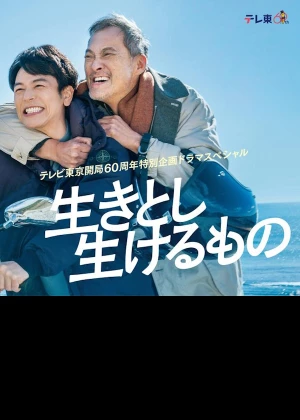
Hiroki's TV movie is a film that rises above its limitations but still finds itself stuck in TV land (meaning the topics and themes are quite pedestrian). The drama isn't too bad, and there are moments of genuine warmth and empathy, but it lacks Hiroki's edgy approach and raw delivery.
Read all
It's not the most original setup, and Hiroki tries to balance standard drama with more insightful moments. But as the film needs to keep a relatively light tone, it inevitably becomes borderline sentimental. The slick cinematography and decent score make sure it never crosses that line, making this a pleasant little drama. Not a standout in Hiroki's oeuvre though.
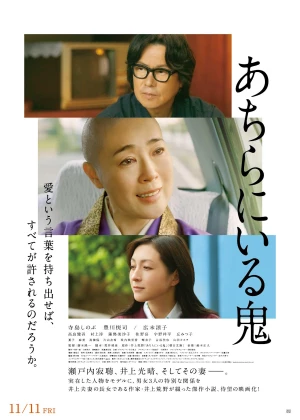
A fascinating film by Hiroki. It's a rather meticulous and subdued rendition of a polyamorous relationship. It's not that the film is without drama, but the relationship isn't the main focus, rather the main characters are. It's maybe a bit too obvious this is a book adaptation, but other than that, an easy recommendation for fans of Hiroki.
Read all
Shinobu Terajima is one of Japan's treasures, she carries a difficult role like this one with ease. The rest of the cast is good too, it was fun seeing Ryoko Hirosue again for one, but they all pale next to Terajima. The presentation is clean but a little static, the drama is profound but not exactly riveting. It's a quality film, just a bit too prim and polished for my taste. That said, if you like Japanese drama, this is a must-see.
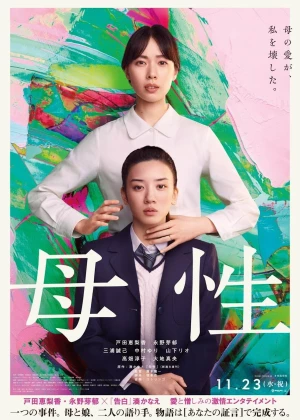
A story about three generations of women. They are daughters and mothers, but not always in equal measure. It's an interesting premise delivered with a level of openness and honesty that is quite surprising, Hiroki is also the perfect man for the job, but the plot tends to get in the way of the drama.
Read all
The performances are strong, the drama is intriguing (and rather original too) and Hiroki's touch is visible. The plot is a little overworked though and the film gets too sentimental in places, where a more subtle approach would've worked better. Not bad at all, but I expect more from Hiroki.
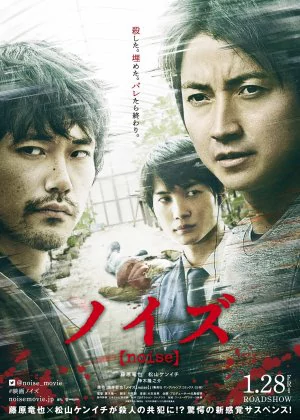
With all the talent involved, I expected a slightly better film. Not that Hiroki's Noise is bad, there's plenty of quality on display here. It's just that it never quite felt like true cinema, just a manga/story brought to the big screen. That's one of the downsides when you're working with too much talent and popular IP I guess.
Read all
The characters have little room to shine, which is Hiroki's strong point. Instead, a lot of time is spent on the plot, which is decent enough, but not all that special. The cinematography is pleasant, and the soundtrack adds a little extra class, but in the end, there's just not all that much there that sets it apart from other films.
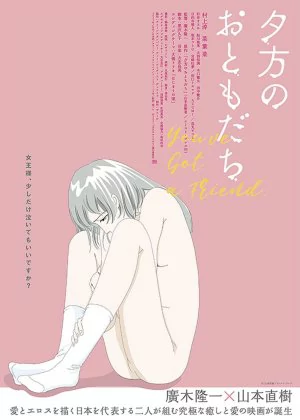
Hiroki's latest drama harks back to his early days, back when the subjects for his films were riskier and more taboo. It's good to see that he hasn't forgotten about his past, at the same time I'm not sure if the blend of old and new is really the best way to handle films like these. While a fine drama, I did miss the edge that made his early work stand out.
Read all
The drama is solid, the subject matter adds an extra dimension and the characters are pleasant, warts and all. The cinematography felt a bit basic though and Hiroki usually gets a bit more out of his actors. Small details keep this film from becoming the next gem in Hiroki's oeuvre, but fans won't be too disappointed watching this.
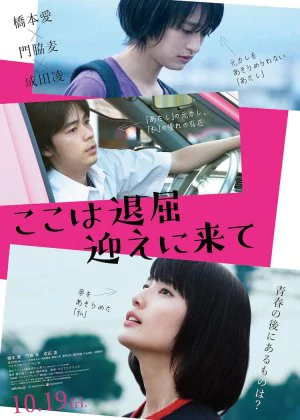
Celebration of youth. A typical Hiroki drama, that languishes in the mundane, but manages to hit several deeper themes along the way. The actors are great, Hiroki's style is fitting and the light-hearted tone makes this a very easy watch. Not one of his best films, but a very fine drama that will effortlessly appeal to Hiroki fans.
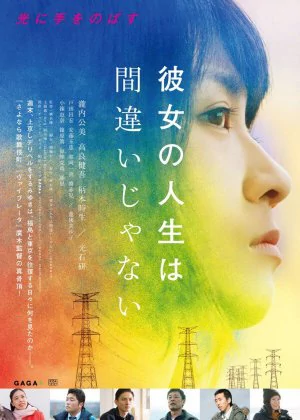
Solid drama from Ryuichi Hiroki, where he returns to the Fukushima disaster area to see how many people are still struggling with the aftermath. It's a little too disjoined for its own good, but there some poignants moments and surprising insights that make this worth the while.
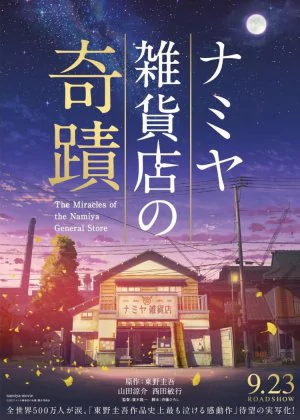
Sweet and endearing drama with a slightly fantastical touch. The film is beautifully shot and feels like a warm blanket, an ideal watch for a warm and summery day. It gets a little too dramatic at times and personally I prefer Hiroki's more serious work, but this is two hours well spent.
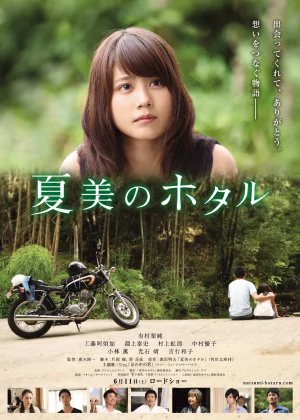
A very solid but slightly unremarkable Hiroki. I liked the first half best, as the drama is very light and the narrative is almost fleeting. The second half is a little too heavy-handed in comparison, but Hiroki's base quality is definitely there. A few beautiful scenes, good acting and a complete lack of forced sentiment make this an easy recommend for fans of Japanese drama.
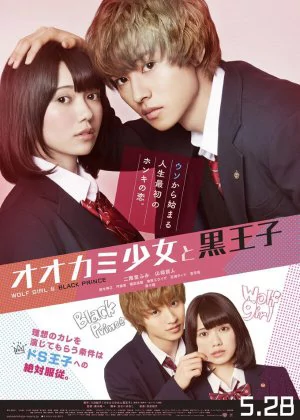
One of Hiroki's manga adaptations. You could probably already gather from the somewhat outrageous premise, which dictates the events during the first hour of the film. After that things get a bit more serious (and the overall quality of the film goes up), though it's still very predictable. Fans of Hiroki will find quite a bit to like here, but it's not one of his best works.
Read all
Erika is a teen who struggles to find a boyfriend. When she gets so tired of her friends badgering her about it, she tells them she has already found one. Her friends don't believe her and Erika ends up asking a random guy at school to pretend for a while. He obliges, but in return, he demands that Erika behave like a dog when they are privately together.
The setup takes a while to explain and the first hour is mostly spent on that. The second hour inserts more actual romance and drama and both characters are allowed to breathe a bit. The performances are solid, the presentation is rather slick and the finale is worth the investment. It's all a bit tame, especially for a Hiroki flick, but it's pretty fun filler regardless.
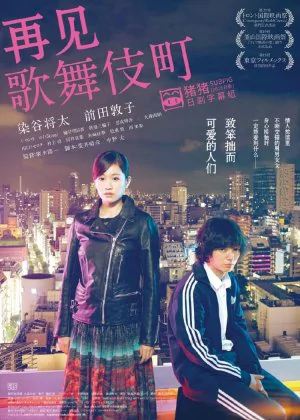
A pleasant Hiroki film, which takes on a different kind of drama here. Kabukicho Love Hotel is a film without a central character, instead, the hotel itself claims the spotlight. While properly executed, it's not really where Hiroki's primary strengths lie, which is something that becomes apparent in this 2-hour plus film.
Read all
Kabukicho is part of the Shinjuku district, the titular hotel is a typical love hotel, a place for couples and other interested parties who need a private spot for their sexual adventures. Toru is a young guy who manages the hotel. One day his sister and his friend Saya turn up, and both have some private business there. Meanwhile, a young Korean woman is trying to make a buck to open a store in her home country.
Hiroki skips between different plot lines, but none are truly strong enough to create a gripping drama. The setting is interesting and Hiroki's style works well enough, the performances are also solid, it's just the soundtrack that feels a bit superfluous. All in all, a fun and pleasant addition to Hiroki's oeuvre, but not one of his better films.
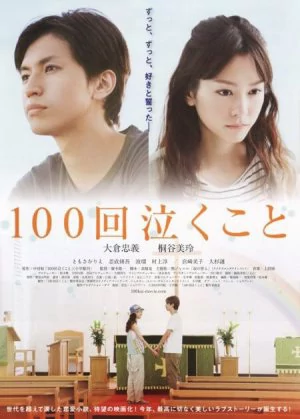
Japanese drama where the romance of a budding couple is rudely interrupted by a terrible disease. It's a pretty big niche within the drama genre, but one I grew tired of rather quickly. Hiroki does a solid job, but this is clearly a film targeting the local market. Things get far too cheesy and sentimental to count it as one of his best films.
Read all
When Shuichi is involved in a serious traffic accident, he is left with a gaping hole in his memory. Once he recovers he attends a close friend's wedding. There he meets Yoshimi and the two get involved. Shuichi wants to marry her, but then Yoshimi suddenly falls ill. What Shuichi doesn't realize is that his memory loss hides a heartbreaking tragedy.
Hiroki manages to draw a little extra from his characters and there are a few touching moments scattered throughout. There are also some scenes where things get a little too sentimental and the drama turns silly. This isn't one of his better films, Hiroki is better served by strong characters and more edgy drama, but if you love these illness-torn romances you can't go wrong with this one.
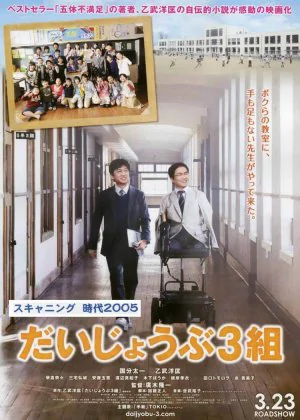
A film that reminded me a bit about Hiroki's Locomotive Teacher, though that one benefitted from a more appealing setting (and some less overt drama). It's another fine Hiroki project though, a film that is littered with small, gentile moments, that make sure the film never becomes too schmaltzy and sentimental (even though it's a bit borderline).
Read all
Akao is a teacher who handles a class of 28 students. That's quite the challenge already, to make it even harder on him he has no legs or arms. Akao isn't defeated by his condition, and with the help of a friend, he does his best to teach his class to the best of his abilities. Luckily, the kids also do their part to help out their teacher.
With a setup like this, things are bound to get a little sentimental. I also feel Hiroki fares better when he deals with strong, edgy characters rather than very specific dramatic setups, but Nobody's Perfect is another fine entry in his vast oeuvre. Solid performances, little touches of magic, and a wholesome vibe help to elevate this film. A masterpiece this is not though.
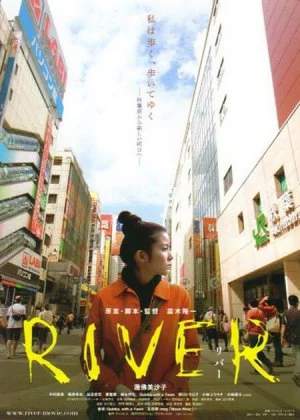
Somewhat of a turning point in Hiroki's career. After a slew of dramas that ping-ponged back and forth between edgy and arthouse, River is a film that explores a more traditional drama setup. It's a good film, but knowing Hiroki's strengths, it's not entirely satisfactory, and it left me a little wanting.
Read all
When Hikari's friend is murdered, she removes herself from the world around her. Hikari's friends are worried and they slowly convince her to come out of her shell. Hikari starts roaming around Akihabara, where she meets all different kinds of people, who are each battling their own demons.
My biggest gripe is that River is two films in one. The first half was the most gripping, then it suddenly became a post-tsunami drama. And it's not that the material or the execution was bad, the second half has some poignant scenes, it just didn't feel part of the film I'd been watching up until that point. Otherwise a solid drama, just don't expect prime Hiroki.
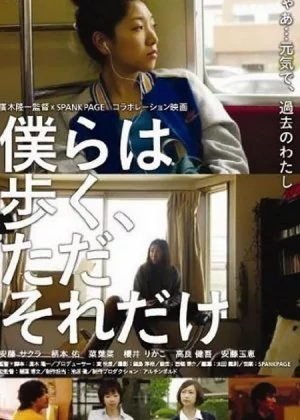
Hiroki and Ando combining forces means instant quality. Sadly neither of the two goes beyond to make this film truly special, but what remains is a very warm and touching drama with a few stand-out scenes. Ando's acting chops and Hiroki's aptitude for drama are unmistakable, an easy recommend if you're in the mood for a Japanese drama.
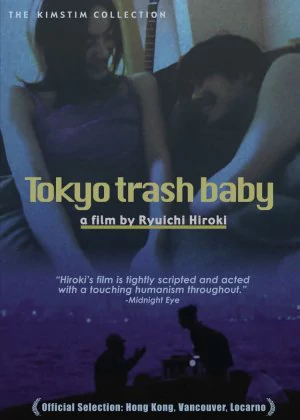
This is where things started to change for Hiroki. After a long run-in directing pinku films and a few first tepid attempts at doing drama, Tokyo Garbage Girl is one of his first films where his grittier side and his knack for depicting strong female characters started to surface. It would mark the start of a great career.
Read all
Miyuki works as a waitress in a local bar. She has a secret crush on the boy who lives in the flat above her. She's too shy to approach the boy, so to know more about him, she starts going through his trash. It turns out to be a pretty effective method, but soon it becomes an obsession for Miyuki.
The performances are solid and Miyuki is an interesting character, but the film lacks the dramatic refinement of Hiroki's best films. The cinematography is a little rough and the minimal budget left its mark on the film. Still, if you like Hiroki's work, there's a lot to love here, even if it's a little rough around the edges.
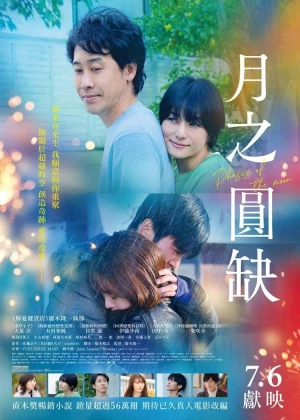
An interesting drama that gets a bit too sentimental. The premise is fun and this might've been a perfect match for Hiroki if it hadn't been one of his more commercial outings. Phases of the Moon is one of his crowdpleasers, and because of that, it lacks the edge that makes his work stand out.
Read all
The performances are a bit uneven, the drama could've been more subtle and the premise isn't used to its fullest. The styling is polished though and there are moments when Hiroki's craft shines through, it's just that he is capable of so much more. Not a bad film, just not good enough considering the talent involved.
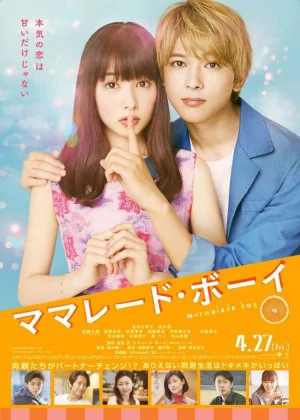
Not of one Hiroki's best. There are moments where his talent shines through, but the story is a bit too convoluted and the theme is handled in a way that seems to reference the manga a bit too literally. Overall it's not a bad film with a couple of worthwhile scenes, but Hiroki has shown he can do better.
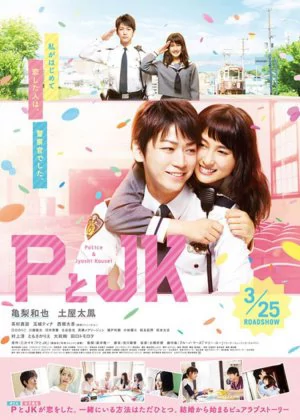
Hiroki tackles a weird romance manga with a plot that never really made sense to me. It might be a cultural thing (but one I never came across before), or maybe the manga made things clearer, but the romantic complications were truly nonsensical, so much that it affected the rest of the film.
Read all
Kako is desperate for a girlfriend, so she joins a mixer for university students. There she meets Kota, a boy who is not only considerably older than she is, he's also a police officer. The two hit it off, but when Kota finds out that Kako is much younger than he is, he struggles to continue the relationship.
How you go from that premise to a forced marriage was beyond me, but maybe I missed something. The first hour is pretty decent, thanks to the lovely setting and some vintage Hiroki touches, the second hour is dominated by the narrative and is less interesting. Not a terrible film, but if someone can explain what the heck was going on here, please do!
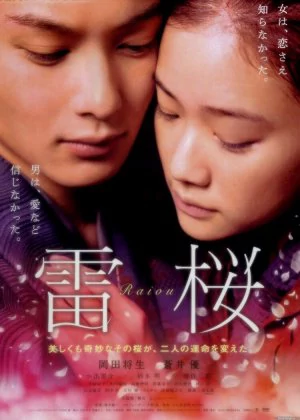
Hiroki goes for a more generic genre effort here. I understand he was trying to branch out, something he once explicitly stated in an interview, but where he was usually able to add something unique to each genre he tackled, The Lightning Tree truly is a film that sticks firmly to genre conventions. And that's simply not where his strengths lie.
Read all
The Raiou tree is a tree that symbolizes the conquering of adversity. Once hit by lightning, it is once again blooming with cherry blossoms. Under that tree, two young people meet. One is of wealthy descent, and the other is a girl kidnapped at a young age and living a free life in the mountains. They fall in love, but society isn't ready to accept their relationship.
The performances are a little flakey, the narrative gets pretty sentimental and Hiroki doesn't manage to put his stamp on this film. It's still a decent enough genre effort and fans of historic romances will find something to like here, but compared to what I'm used to seeing from Hiroki, this was somewhat of a disappointment.
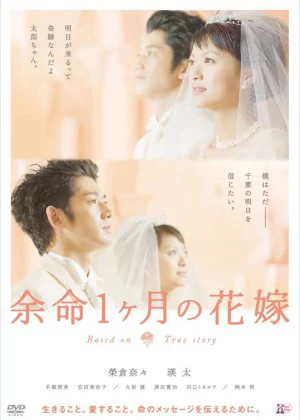
Hiroki takes on the romance meets terminal disease niche. It's not Japan's finest genre, but I'm guessing it does quite well locally because for the past 10-15 years there's been a rather constant stream of these films. It could've been interesting in the hands of Hiroki if he'd done his usual thing. Sadly, he stuck quite rigidly to genre conventions.
Read all
Chie is diagnosed with breast cancer. She undergoes treatment, but she decides to leave her current life behind. Her current boyfriend doesn't want to lose the love of his life and he tracks her down, convincing her to come back to him. She agrees, but cancer hits her a second time. This time Chie's boyfriend and her father decide to keep it from her.
Hiroki picks his moments, scenes that are a tad warmer and more touching than usually the case. Overall though, this is a pretty basic, overly sentimental romance with its fair share of drama. I've seen a few too many of those and I would prefer if they'd dial them back a little. Not the worst of the bunch though.
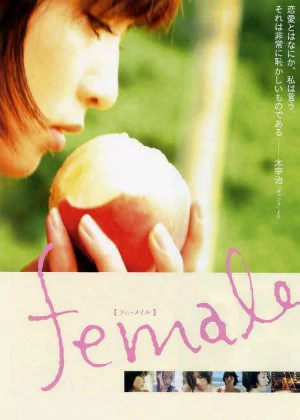
A somewhat disappointing anthology, especially when looking at all the impressive names involved. Five famed directors (apart from Nishikawa all male) each take on a female story. Few of them grabbed this opportunity to come up with something unique, which means you only get some decent but relatively standard drama. With these directors, I needed more.
Read all
The first story is about a girl returning to her hometown, the second one sees two women bonding after one attempts to steal money from the other. The third short follows a woman on holiday with her employer, the fourth one has a young man fancy the friend of his mother, and the final one tells of a mistress waiting for her lover.
Matsuo's short is the best one, while Tsukamoto's short has the best individual scenes. Hiroki's film is probably the least successful of the bunch, but comedy isn't his strong suit. I just wish there were more memorable entries here. When you have less time to impress, you have to go bigger, even if that means failing spectacularly. In contrast, I'd rate all shorts here in the 3-3.5* range, which is not what I'm looking for in a good anthology.
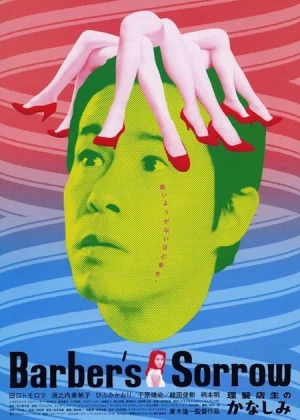
A pretty special Hiroki, if only because he isn't known for directing romantic comedies. Mind you, this isn't a typical romcom. Hiroki's taste for kinky and somewhat taboo subjects is woven into the story, with strong BDSM elements turning this into a very different, although still prim and proper, romantic comedy.
Read all
The cast is strong (shoutout to Akira Emoto and Tomoro Taguchi), the presentation is stylish and the comedy is understated but funny. Beyond its premise, the film isn't too original and there aren't many surprises here, but it's an odd little diversion that showcases Hiroki's broader talents. Fun filler!
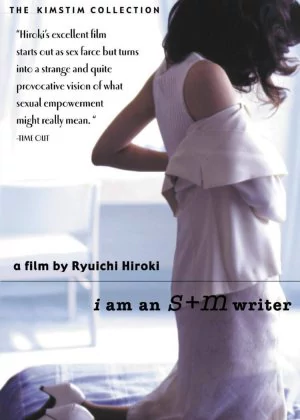
One of those films that perfectly illustrates Hiroki's shift from pinku cinema to (arthouse) drama. The themes and focus on kinks are still very much present, the rhythm is reminiscent of the typical pinku films, but it should be clear that Hiroki isn't out to titillate. The film balances lighter and more serious drama with a fun and kinky topic, a niche he would continue to explore in the later stage of his career.
Read all
The story revolves around Oniroku Dan, a writer of erotic fiction, with a particularly strong interest in the kinkier material. To find more inspiration, he hires a female assistant who ties up women for him and whips them. Things get a little trickier when Dan's wife develops romantic feelings for his assistant. Dan isn't sure how he feels about this.
The start of the film is quite light, almost comedic. With Ren Osugi taking on the lead it makes for some great scenes. The man has a stern look, but he can be pretty weird and funny if need be. The drama in the second half felt a bit forced and even though the styling is pleasant, Hiroki improved quite a bit for his following films. A must for fans of his work, but it's still one of his weaker works.
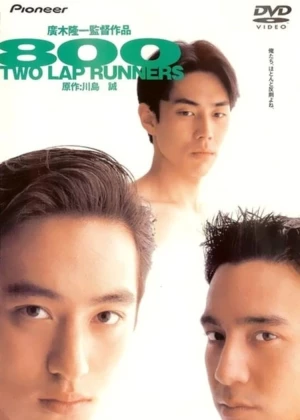
An essential Hiroki, but one that's been unavailable to us mere Westerns until very recently. It's one of the first films where he shifts his focus from pinku to purer drama. There are still some pinku influences left, but 800 Two Lap Runners is very much a typical and capable early 90s sports romance.
Read all
The performances are solid, Hiroki's eye for drama is already present and the pacing is fine. Other than that though, it's a pretty basic Japanese affair. It's not comparable to the amazing films he would direct at a later stage in his career, but if you're looking for a solid drama and you're a completionist like me, this is a superb film.
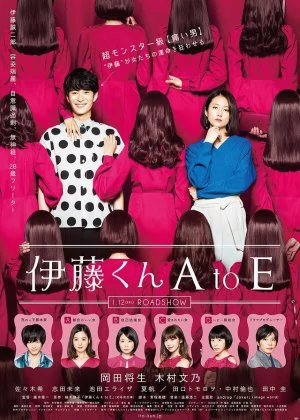
A rather poor Ryuichi Hiroki film. It lacks his knack for properly fleshing out characters and it looks a little too slick. Not too surprising since this is the film-sequel of a popular J-Drama, but still I expected more from him. It's not a terrible film, just that Hiroki could've done a lot better with this material.
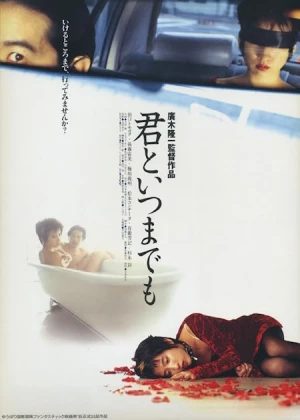
The renewed interest in the 90s comes with a few upsides. One of them is that some forgotten films are finding their way into the spotlight again. Case in point: Hiroki's Forever with You. For a completist like myself, it's nice to finally plug some important gaps in Hiroki's oeuvre.
Read all
This is another one of his works smoothing over the gap between his early pinku films and the (edgy) millennium dramas that cemented his reputation. The pinku structure is still present and feels a little limiting, but Hiroki is already working hard to break free from it and deliver something with a bit more flair and depth. A decent film, but little more than a stepping stone to some of his later gems.
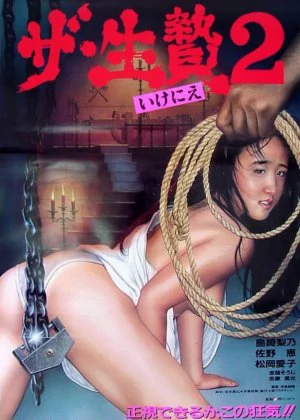
I'm a big Ryuichi Hiroki fan and am well aware of his pinku past. I went in with low expectation based on previous experiences (Sono and Kurosawa came to mind), but got something worse than I was expecting. This is not your typical pinku film, instead it felt more like early Wakamatsu meets Guinea Pig.
Read all
This film is extremely unpleasant, as it's little more than a 70-minute extended rape scene. There is no plot, no relief, just a dry observation of perversions and rape. The film's cinematic qualities are poor and the runtime excessive, it's hard to believe one of the directors behind this film would be capable of so much nuance and tenderness in his later career.